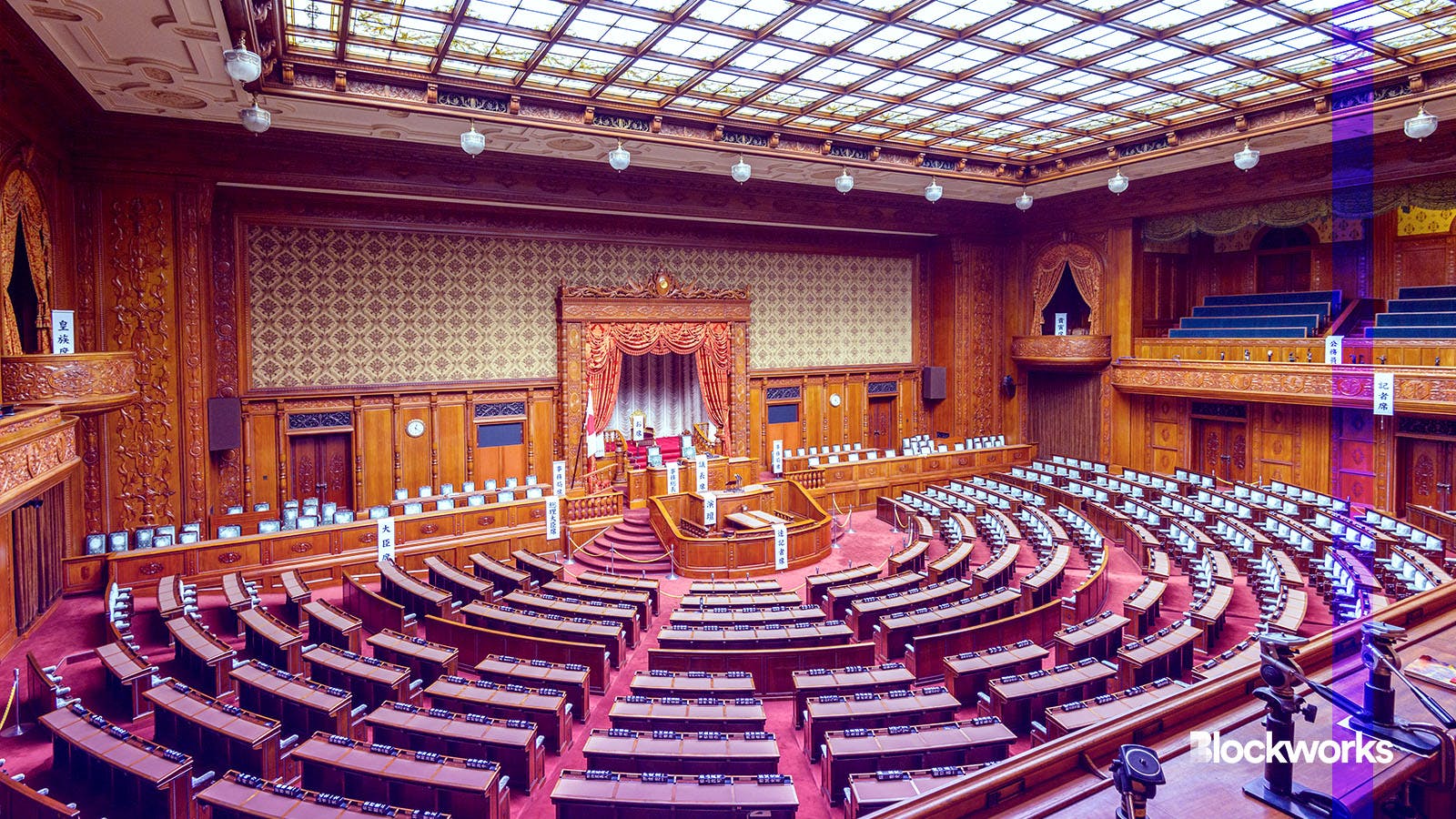Japan’s crypto policy takes a positive step forward
A proposal to allow venture firms to own cryptoassets, first put forward last year, moves closer to law

Shutterstock / Sean Pavone, modified by Blockworks
The Japanese government is advancing an economic reform bill with notable implications for the crypto industry.
A measure included in the proposal would allow investment limited partnerships to acquire and hold cryptoassets. These entities are commonly used for private equity, real estate investments and venture capital investments.
This legislative proposal, published Friday by Japan’s Ministry of Economy, Trade and Industry, now heads to the Diet, Japan’s national legislature.
Broadly, the bill is designed to foster new business creation and strategic domestic investment through tax incentives, and other financial support aimed at specific strategic objectives.
The provision to allow investment firms to directly hold cryptoassets, proposed in September 2023, is seen as a softening of Japan’s relatively stricture regulatory stance when it comes to crypto.
Read more: Japan to let startups raise VC funding via digital assets: Nikkei
The inclusion of crypto assets in the legal framework not only legitimizes their use in institutional investment strategies but also positions Japan as a forward-thinking player in the global digital assets space, said Sota Watanabe, the founder of Astar Network a layer-1 blockchain popular in Japan.
“This is a crucial step for enriching and nurturing the national industry,” Watanabe told Blockworks. “Notably, this issue has long been a risk factor raised by VCs and startups.”
Read more: Toyota Tests Developer Skills on Popular Japanese Blockchain
By integrating crypto assets into a broader strategy for industrial competitiveness and innovation, Japan’s signals commitment to adapting its regulatory and economic policies to the evolving digital economy.
“Politicians, equipped with accurate knowledge, are moving towards relaxing these regulations,” Watanabe said. “This shift, a result of concerted public-private efforts, represents a victory for all involved.”
The current Diet session runs until June 23, 2024, but legislators can opt to carry over bills, which do not automatically expire as they might in the US Congress at the end of a two-year cycle.
Get the news in your inbox. Explore Blockworks newsletters:
- The Breakdown: Decoding crypto and the markets. Daily.
- 0xResearch: Alpha in your inbox. Think like an analyst.






